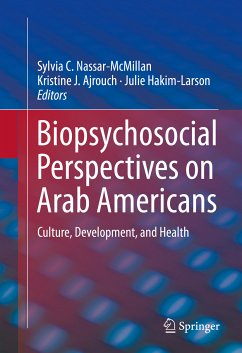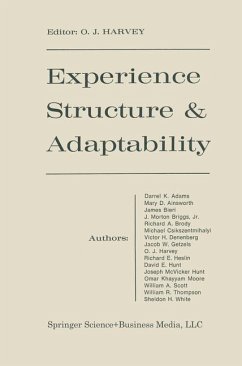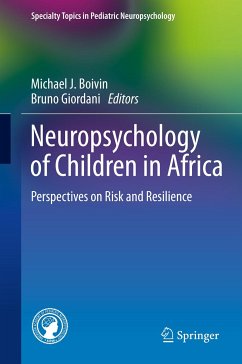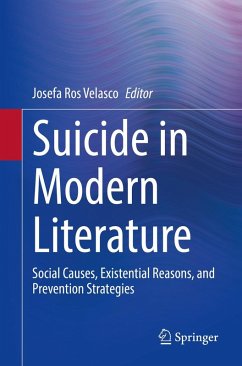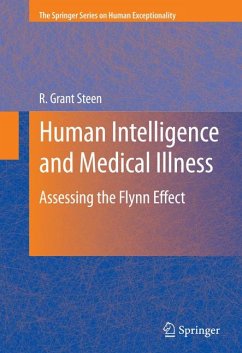
Biopsychosocial Perspectives on Arab Americans (eBook, PDF)
Culture, Development, and Health
Redaktion: Nassar, Sylvia C.; Hakim-Larson, Julie; Dallo, Florence J.; Ajrouch, Kristine J.
Versandkostenfrei!
Sofort per Download lieferbar
88,95 €
inkl. MwSt.
Weitere Ausgaben:

PAYBACK Punkte
44 °P sammeln!
The biopsychosocial study of Arab Americans yields compelling insights into innovative theoretical and applied initiatives. In the context of a growing population of Arab Americans, coupled with the current tenure of xenophobia and exposed structural racism in the US, clinical and community practitioners must be attuned to their clients of Arab ancestry, whose experiences, development, and health concerns are distinctly different than that of their White counterparts. This second edition, with its uniquely interwoven sections of culture, psychosocial development, and health and disease, provid...
The biopsychosocial study of Arab Americans yields compelling insights into innovative theoretical and applied initiatives. In the context of a growing population of Arab Americans, coupled with the current tenure of xenophobia and exposed structural racism in the US, clinical and community practitioners must be attuned to their clients of Arab ancestry, whose experiences, development, and health concerns are distinctly different than that of their White counterparts. This second edition, with its uniquely interwoven sections of culture, psychosocial development, and health and disease, provides a rich overview of timely, critical topics. The audience for the text includes counselors, social workers, psychologists, nurses, psychiatrists, sociologists, and any other public and mental health practitioners, researchers, and policy makers who work with and on behalf of clients and patients of Arab descent. The authors represent a team of leading experts spanning disciplines of sociology, clinical mental health, and community public health.
"This edition draws on leading experts in Arab American health and sociology who document the complexity of this population's immigration and acculturation experience. It offers critical and current research that speaks to the centrality of context and diversity in treating Americans of Arab descent. Contributors explore the complex and limited racial framework within which Arabs in the U.S. form their identities, and the impact of structural racism on their lives and health. This collection offers practitioners much needed insights on a population often hidden or rendered invisible by data limitations, and yet misrepresented by cultural stereotypes."
Helen Hatab Samhan, Former Executive Director, Arab American Institute/Foundation.
"Nassar, Ajrouch, Hakim-Larson, and Dallo's breakthrough work in the area of culturally competent health care has been inspiring across interdisciplinary fields and to the communities they serve. Their work on Arab American health issues, in particular, has greatly improved clinical practice at the community and national levels. I heartily recommend taking the time to become familiar with their important body of work and this latest text."
Ismael Ahmed, Former Michigan State Director of Health and Human Services.
"This edition draws on leading experts in Arab American health and sociology who document the complexity of this population's immigration and acculturation experience. It offers critical and current research that speaks to the centrality of context and diversity in treating Americans of Arab descent. Contributors explore the complex and limited racial framework within which Arabs in the U.S. form their identities, and the impact of structural racism on their lives and health. This collection offers practitioners much needed insights on a population often hidden or rendered invisible by data limitations, and yet misrepresented by cultural stereotypes."
Helen Hatab Samhan, Former Executive Director, Arab American Institute/Foundation.
"Nassar, Ajrouch, Hakim-Larson, and Dallo's breakthrough work in the area of culturally competent health care has been inspiring across interdisciplinary fields and to the communities they serve. Their work on Arab American health issues, in particular, has greatly improved clinical practice at the community and national levels. I heartily recommend taking the time to become familiar with their important body of work and this latest text."
Ismael Ahmed, Former Michigan State Director of Health and Human Services.
Dieser Download kann aus rechtlichen Gründen nur mit Rechnungsadresse in A, B, BG, CY, CZ, D, DK, EW, E, FIN, F, GR, HR, H, IRL, I, LT, L, LR, M, NL, PL, P, R, S, SLO, SK ausgeliefert werden.



